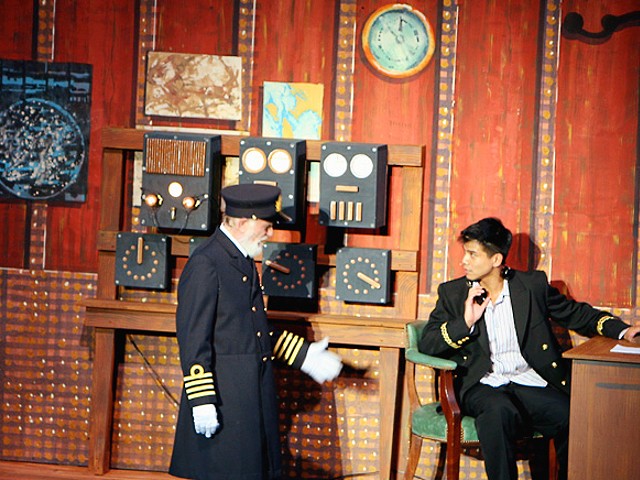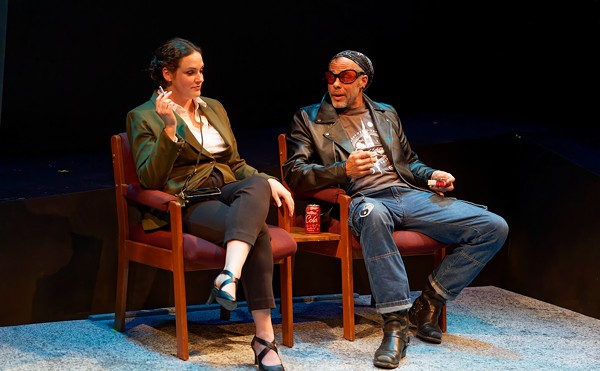It's just possible that the most powerful people in the arts today are not producers or even directors. (Certainly not actors.) The most influential people are those — often those few — who would censor. A case in point: Four years ago Fulton High School in central Missouri staged the musical Grease, which is hardly a seditious piece of theater. But three members of the same local congregation, Callaway Christian Church, wrote letters to Fulton's superintendent of schools to condemn the low morals in the production. No matter that at least one of those three irate correspondents had not seen the production. The letters so rocked superintendent Mark Enderle that he canceled the high school's next production, Arthur Miller's The Crucible, which no one had even complained about. "That was me in my worst Joe McCarthy moment," Enderle later conceded.
Three letters doesn't sound like an overwhelming mandate, but apparently there's no minimum on timidity. In Nova Scotia, Harper Lee's novel To Kill a Mockingbird was pulled from a high school curriculum on the complaint of one parent.
Which brings us to the polarizing play My Name Is Rachel Corrie, currently on view in St. Louis. Corrie was first and foremost a gifted writer. In January 2003 this chain-smoking, list-making, politically naive 23-year-old college student traveled from her home in Olympia, Washington, to the Middle East to witness firsthand the effects of the Israeli occupation of Gaza. Two months later she was crushed to death by an Israeli Army bulldozer as she sought to prevent that armored vehicle from destroying a Palestinian home in the southern Gaza Strip. Although an extensive account of her death ran the next day in the New York Times, and although that wily opportunist Yasir Arafat promptly latched on to Rachel as "our sister, the martyr," the news of her death was soon swallowed up in the vortex of world events: The American invasion of Iraq began three days later.
Her story might have disappeared had not actor Alan Rickman read some of Corrie's impassioned e-mails in the British newspaper the Guardian. Two years later the one-woman play My Name is Rachel Corrie, edited by Rickman and Guardian journalist Katharine Viner and directed by Rickman, opened at London's Royal Court Theatre, where it succeeded in putting a benign face — an American face — on the plight of the Palestinians. The production twice had to be moved to larger theaters to accommodate demand for tickets.
But a much-anticipated production scheduled for 2006 at the New York Theatre Workshop was canceled after some of the workshop's Jewish donors threatened to withdraw their funding. Once again, as with the Missourians who opposed Grease, many of those who sought to prevent My Name is Rachel Corrie from being staged in the United States had not seen it. But the very idea of its existence seems to frighten some people.
Numerous other productions have been threatened; some have been canceled. Nevertheless, Rachel Corrie has been produced around the world — eventually in New York, last year even in Israel. Now in St. Louis. It's as if we're being given a theater gift, the opportunity to judge for ourselves what the furor is all about. Will the play's rhetoric be so inflammatory that the entire piece should be censored? Or will those who would suppress My Name is Rachel Corrie be exposed as unduly fearful? This is our opportunity to find out.





